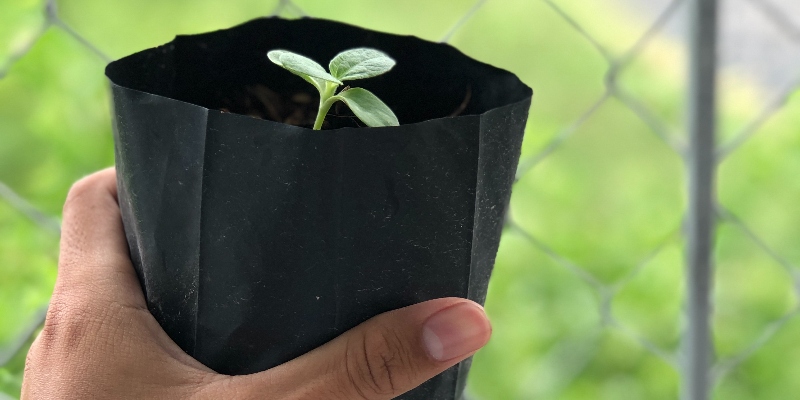Baptists and church planting
Could we plant in teams? And what are we looking to plant: a worship centre in a building, or a community? A reflection by Michael Shaw

Earlier this year Pete Greig of the 24/7 prayer movement travelled along St Aidans Way from the Scottish Island of Iona to Lindisfarne on the northeast coast of England. As he did, he recorded his thoughts and reflections on the popular devotional app, Lectio365. One of the days (2 July) he said this:
'Instead of planting churches in the way we tend to today, the Celts established holistic communities which could show the world what the kingdom of God looks like. These Celtic monasteries served variously ‘as hospital, hotel, school, university, arts workshop, open prison and reformatory, night shelter and drop-in day centre, as well as church, retreat house, mission station and place of prayer and spiritual healing.'
Over the last few years, I have reflected upon how we as Baptists have church planted. I am the pastor of a church plant (not established by me, I took the church on after the founding pastor died of cancer). The church was planted into a very deprived, highly de-churched community and it was done by the big church in the city centre, which had a missionally focused minister, who wanted to use the churches numbers, influence, and money to make a big difference in difficult communities in the city.
A few years ago I asked in a private ministers' forum on Facebook of more than 500 ministers representing churches across the nation, how many knew of any recent Baptist church plants, where it is the classic mother daughter (see Planting Churches by Stuart Murray) style, and only one person responded with knowledge of one.
One of the issues I have seen is that while there are many pioneers planting various forms of “Church” (not always Sunday worshipping communities) they are often planted by individuals and their families with the support of a local Association, rather than an church that is looking to plant.
In the meantime, church networks such as Vineyard or HTB have seen great success by planting in teams. These plants (or in some cases replants) are often done as like for like plants, often aimed at city centres especially among students and young adults, where there are normally already well established and thriving church communities.
So, we have a problem: as Baptists we are relying on pioneers, often at great personal cost, to plant, while other church networks are planting in teams, but often into already well established soil. So, churches like mine are very unusual – planted by one church into an area of high deprivation and low church attendance.
But also, we have another issue – what are we looking to plant? Are we looking to plant a worship centre in a building or are we looking to plant a community?
One of the key things for me was the name given to my church – Devonport Community Baptist Church (I can’t claim any credit), we have always seen the community in two ways – firstly, we are a community of disciples who do life together based on a set of values we hold to (Generosity, hospitality and Joy,) but also that we exist within a community – the community in which the church exists!
The ancient Celts of the 4th, 5th and 6th centuries, of which Greig was talking about, didn’t plant churches that planted monastic communities; these communities where not austere monks and nuns who shunned the outside world; they were hearts of wider communities. Places such as Glasgow, St Davids and Cork all began from monastic communities that over time became cities! The word we have for hospital, comes from the word hospitality - as people were welcome into communities, they morphed into places that cared for the sick, looked after the poor and welcomed the stranger!
What if our church planting was far more holistic? Not just Sunday congregations providing worship services, but all-of the week dwellers (ske¯noo¯) providing community services?
What if we started planting hubs for community, hubs for connection and hubs for congregating, especially among the poor or marginalised?
As a Baptist church family, we need to start church planting, but better still, what if we started holistic community planting?
-
It would take longer, it would need serious community engagement (not a one size fits all approach),
-
It would need to go to communities where the church has lost all its community traction,
-
It would need to focus on listening to what the community need not assuming?
-
It would be uncomfortable, but sadly we as Christians have made a serious idol of comfort!
-
It would not involve short term commitment but long term, so strategic not tactical
It would be risky, but what have we currently got to lose by trying something unique and different?
Image | Duy Toàn | Unsplash
Michael Shaw is the minister of Devonport Community Baptist Church, Plymouth
Related:
Baptists and the national church planting ecosystem What are the wider Kingdom contributions we make as Baptists around church planting? Alex Harris offers three reflections
A collection of Baptist church planting stories on our #MissionalAdventure pages
Do you have a view? Share your thoughts via our letters' page.
Baptist Times, 04/09/2023